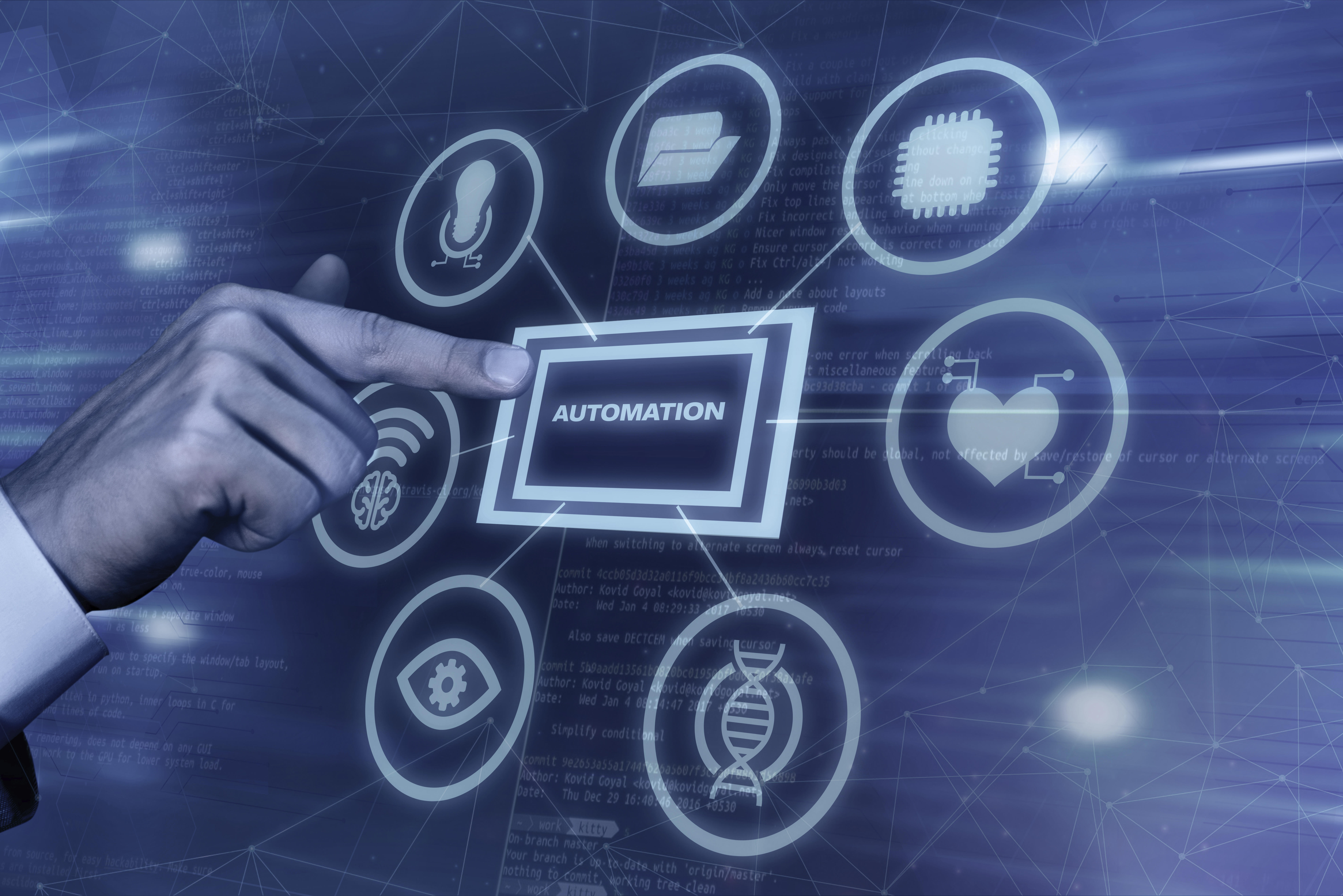Essential AI Skills for a Nurse: A Beginner’s Guide to the Future of Healthcare
Why Do AI Skills for a Nurse Matter in Modern Healthcare?
As artificial intelligence (AI) continues to revolutionize healthcare, the role of nurses is also evolving. From predictive analytics to automated documentation, AI is streamlining processes and improving patient outcomes. To stay relevant and effective in this tech-enhanced environment, developing AI skills for a nurse is becoming essential.
AI technologies are now embedded in many areas of healthcare. Machine learning algorithms assist with diagnostics by analysing medical images, electronic health records, and genetic data. Chatbots provide basic patient support, while robotic systems assist in surgery and rehabilitation. AI also enables personalized treatment plans based on real-time data, helping healthcare teams deliver better, faster, and more precise care.
The Need for Nurses to Adapt
Nurses are on the frontline of patient care, and their ability to use AI tools directly affects care quality. AI can reduce administrative burdens by automating documentation and routine tasks, allowing nurses to spend more time with patients. Understanding AI systems helps nurses interpret clinical recommendations and flag anomalies in data, making them more efficient collaborators in multidisciplinary teams. As healthcare becomes more digital, nurses who can navigate AI platforms are better equipped to manage complex cases and emerging health technologies.
Who Should Use this Guide?
This guide is designed for nursing students preparing to enter the workforce, practicing nurses who want to upskill, and nurse educators who are updating curricula to meet modern demands. Whether you're just starting your career or already in practice, understanding how AI integrates into clinical settings can give you a professional edge. With healthcare systems investing more in AI, nurses who embrace technological change will be vital to ensuring ethical, patient-cantered care.
What is AI in Healthcare?
Artificial Intelligence (AI) in healthcare refers to the use of computer systems that can simulate human intelligence to perform tasks like problem-solving, learning, and decision-making. These systems are designed to analyse complex medical data, identify patterns, and assist healthcare professionals in delivering more efficient and accurate care.
Simple Definition of Artificial Intelligence
AI is a branch of computer science that enables machines to mimic human thinking and learning. In healthcare, it can be as simple as an app reminding patients to take their medication, or as advanced as algorithms that predict disease risks based on patient data. AI systems can learn from historical information and improve their performance over time, making them increasingly useful in dynamic healthcare environments.
Examples of AI in Hospitals and Clinical Settings
Hospitals around the world are already using AI in several ways. For instance, AI-powered imaging tools help radiologists detect abnormalities in X-rays or MRIs with high accuracy. Virtual nursing assistants can provide patients with 24/7 answers to routine health questions. Electronic Health Records (EHRs) are also enhanced with AI to detect early warning signs of patient deterioration. In operating rooms, robotic systems supported by AI assist surgeons in performing precise procedures with minimal invasiveness.
Role of AI in Supporting, Not Replacing, Nurses
It’s important to understand that AI is designed to support—not replace—nurses. By automating routine administrative tasks like data entry and appointment scheduling, AI frees up time for nurses to focus on direct patient care. It also provides real-time insights that help nurses make informed clinical decisions. Developing a foundational understanding of AI is increasingly seen as part of the skills for a nurse in modern healthcare. Nurses who collaborate with AI systems can enhance both their productivity and the quality of patient care.
What Core AI Skills Does a Nurse Need to Know?
As healthcare continues to integrate advanced technologies, nurses must develop specific competencies to work effectively in AI-supported environments. These core skills help nurses use AI tools safely, ethically, and confidently in clinical settings.
Digital Literacy
Digital literacy is the foundation of working with AI in healthcare. It involves understanding how to operate basic digital tools and electronic health systems. Nurses need to be comfortable using software for charting, telemedicine platforms, and patient monitoring systems. Familiarity with AI-powered interfaces, such as virtual assistants or diagnostic tools, allows nurses to better support patient care and adapt to new innovations.
Data Privacy Awareness
With AI systems processing vast amounts of sensitive patient data, understanding data privacy is essential. Nurses must be aware of regulations like HIPAA or GDPR, depending on their region, and how these laws affect digital recordkeeping. Recognizing the risks of data breaches and knowing how to handle data securely ensures patient confidentiality and builds trust. A nurse’s role also includes educating patients on how their data is used by AI tools, which further emphasizes the importance of this skill.
Clinical Decision Support Understanding
AI often plays a role in Clinical Decision Support Systems (CDSS), which provide evidence-based recommendations during patient care. Nurses must be able to interpret alerts, suggestions, or risk scores generated by these systems. Rather than blindly following AI outputs, skilled nurses evaluate whether the AI's recommendation aligns with the patient's unique condition. This critical thinking ensures that care remains personalized and patient-cantered.
Building these capabilities is increasingly important in developing the overall skills for a nurse in the digital age. With these core competencies, nurses can confidently collaborate with AI systems while maintaining the highest standards of care.
What are the Top Technical AI Skills for a Nurse in the 21st Century?
In today’s healthcare landscape, nurses are expected to engage with various technologies that rely on artificial intelligence. Developing technical competencies in these areas is essential for improving patient care, ensuring efficiency, and staying current with healthcare innovations.
Working with Electronic Health Records (EHRs)
Modern EHR systems are increasingly integrated with AI to help nurses track patient histories, flag anomalies, and automate documentation. Nurses should be able to navigate EHR platforms, input accurate data, and understand system-generated alerts or clinical suggestions. Efficient use of EHRs enhances communication across care teams and supports evidence-based decision-making.
Understanding AI-Powered Monitoring Tools
AI-powered patient monitoring tools can track vital signs in real time, detect early signs of deterioration, and alert staff to potential emergencies. Nurses must understand how to interpret data from these tools and respond promptly to system alerts. This skill is particularly valuable in intensive care units and remote patient monitoring scenarios.
Basic Knowledge of Machine Learning and Data Interpretation
While nurses aren’t expected to build AI systems, a basic understanding of how machine learning works can be helpful. Knowing that AI uses historical data to recognize patterns allows nurses to better interpret outputs and assess their relevance. Being able to review dashboards, analyse trends, and question unexpected results ensures responsible and accurate use of AI tools.
Familiarity with Telehealth Technologies
Telehealth platforms use AI to schedule visits, transcribe conversations, and offer decision support during virtual consultations. Nurses must be comfortable conducting assessments over video calls, managing digital records, and guiding patients in using these technologies.
What Soft AI-Related Skills Does a Nurse Need to Bridge Tech and Care?
While technical know-how is crucial in the age of artificial intelligence, soft skills play an equally vital role in helping nurses integrate AI into patient care. These human-centric competencies ensure that technology supports, rather than replaces, the compassionate and ethical nature of nursing.
Communication with AI-Assisted Teams
As AI tools become more embedded in healthcare environments, nurses must work closely with multidisciplinary teams that include IT specialists, data analysts, and AI developers. Clear communication helps translate clinical needs into technical solutions and vice versa. Nurses who can effectively convey patient concerns and interpret AI-driven insights strengthen the overall collaboration within care teams.
Ethical Thinking in AI-Driven Decisions
AI systems can offer recommendations based on data, but they don’t account for every ethical or emotional aspect of patient care. Nurses must exercise judgment when deciding how and when to act on AI suggestions. This involves considering patient rights, informed consent, and cultural sensitivities. Ethical thinking ensures that AI remains a supportive tool rather than a directive force.
Adaptability to New AI Tools and Workflows
AI in healthcare is constantly evolving. From updated software to entirely new platforms, nurses are often required to adjust quickly. Being open to change, learning on the go, and staying positive during transitions helps maintain quality care during technological shifts.
Critical Thinking and Digital Empathy
Nurses must use critical thinking to evaluate AI recommendations in the context of individual patient situations. At the same time, digital empathy—understanding and responding to patients' emotions in a technology-mediated environment—is crucial. Whether delivering care through a screen or explaining how an AI system works, empathy remains central.
How are AI Skills for a Nurse Applied in Real-World Scenarios?
AI is no longer a futuristic concept in healthcare—it’s already making a real difference in hospitals, clinics, and homes. Nurses with AI knowledge are finding themselves better equipped to deliver faster, more accurate, and more personalized care. Here are three common scenarios where AI skills come into play.
AI in Patient Triage and Early Diagnosis
Emergency departments are increasingly using AI-driven systems to triage patients upon arrival. These tools analyse vital signs, symptoms, and medical history to suggest the urgency of a case. A nurse trained in these systems can quickly validate AI-generated insights, prioritize patients accordingly, and reduce waiting times. The nurse also plays a key role in explaining how the technology works to patients and families, enhancing transparency and trust.
Using Wearable Tech to Monitor Patients
Wearable devices like smartwatches and biosensors can track heart rate, oxygen levels, and sleep patterns in real time. AI processes this data to detect abnormalities and alert nurses to potential issues before they become critical. Nurses must understand how to read and interpret this continuous stream of data, communicate findings with physicians, and respond swiftly to alerts. These skills are especially valuable in managing chronic conditions or post-operative care at home.
AI-Assisted Drug Administration and Reminders
AI can assist in medication management by providing automated reminders and dosage adjustments based on patient data. For example, smart infusion pumps use AI to ensure accurate delivery of medication. Nurses using these tools must verify AI-calculated doses, monitor patient responses, and educate patients on safe medication practices.
How to Start Learning AI Skills for a Nurse?
Adapting to AI in healthcare may seem overwhelming at first, but with the right steps, any nurse can build the knowledge and confidence to use AI tools effectively. This guide offers a simple path to developing essential skills that align with today’s evolving healthcare environments.
Assess your Current Tech Comfort Level
Start by evaluating your familiarity with digital tools. Are you comfortable using electronic health records, mobile apps, or online portals? Identifying your strengths and gaps helps you choose the right starting point in your AI learning journey.
Learn Healthcare Data Basics
Understanding how healthcare data is collected, stored, and used is foundational. Learn about structured vs. unstructured data, patient privacy laws, and how data fuels AI algorithms. This step builds the groundwork for interpreting AI-driven outputs in clinical settings.
Take Beginner-Friendly AI Courses
Look for courses tailored to healthcare professionals, especially nurses. Platforms like Learn Artificial Intelligence (LAI) offer beginner-friendly courses that explain AI concepts in practical, non-technical language. These courses cover real-life applications such as AI in diagnostics, virtual nursing assistants, and predictive analytics.
Practice with Real Tools
Apply your learning through simulations or virtual patient platforms. Many institutions offer AI training modules, digital mannequins, and practice EHR systems. This hands-on experience strengthens your confidence and bridges the gap between theory and practice.
Join Nursing and AI Communities
Engage with online forums, professional nursing associations, and AI in healthcare networks. These communities provide access to resources, mentorship, and updates on emerging tools. They also offer a space to share experiences and best practices.
What are the Challenges and Considerations When Learning AI Skills?
As AI becomes more integrated into healthcare, nurses may encounter various challenges when learning to work with this technology. From overcoming fear of the unknown to navigating ethical concerns, understanding these hurdles is essential to successfully building AI competencies.
Common Fears and Misconceptions
Many nurses worry that AI might replace their roles or that they must become tech experts to stay relevant. In reality, AI is designed to support—not replace—human care. Another common misconception is that AI is too complex to understand. However, beginner-friendly resources and practical training programs are making AI more accessible than ever for healthcare professionals. Recognizing these myths early on helps build confidence and encourages proactive learning.
Data Ethics and Patient Consent
AI systems often rely on large volumes of patient data to function effectively. This raises critical ethical questions around privacy, data ownership, and consent. Nurses must be aware of regulations like HIPAA or GDPR and understand how AI tools use data. Equally important is the ability to explain these concepts to patients, ensuring they feel informed and comfortable. Ethical practice involves balancing the benefits of AI with a strong commitment to patient rights.
Staying Current in a Rapidly Changing Field
AI in healthcare is a dynamic field, with new tools and updates emerging frequently. One of the biggest challenges is staying informed and maintaining up-to-date knowledge. This requires ongoing education, participation in professional communities, and openness to continuous learning. Nurses who remain engaged with new developments are better equipped to evaluate tools critically and adapt their practice accordingly.
How AI Skills Will Shape the Nursing Profession?
Artificial intelligence is not only changing how nurses work today—it’s redefining what nursing will look like in the future. From evolving responsibilities to emerging job roles, AI skills are becoming essential for nurses who want to lead and thrive in tomorrow’s healthcare landscape.
How Nursing Roles May Evolve with AI
AI is expected to automate many administrative and routine clinical tasks, allowing nurses to focus more on complex care and patient interaction. For example, AI can handle initial triage or flag abnormal vital signs, enabling nurses to make faster, more informed decisions. As a result, nursing roles may shift toward greater oversight of AI systems, care coordination, and advanced clinical judgment.
New Career Paths Combining Nursing and AI
The rise of AI is also opening up entirely new hybrid roles in healthcare. Positions like Clinical Informatics Nurse, AI Nursing Specialist, or Digital Health Coordinator are emerging, blending nursing knowledge with data analysis and tech skills. These roles offer exciting opportunities for nurses to contribute to AI tool development, implementation, and training—bringing a critical human perspective to technical systems.
Importance of Lifelong Learning
With AI technologies advancing rapidly, staying current is not a one-time effort. Lifelong learning is essential for nurses who want to remain effective and competitive. This includes attending workshops, earning certifications, joining professional networks, and engaging with ongoing digital training. Embracing a mindset of continuous learning ensures that nurses are prepared not just for today’s tools, but for tomorrow’s innovations as well.
Conclusion
AI is rapidly transforming healthcare, and the skills for a nurse in this area are becoming essential for improving patient care and optimizing workflow efficiency. Nurses who embrace these skills will stay relevant in a technology-driven environment and be better equipped to contribute to high-quality patient outcomes. It’s important to take that first step—start by learning the basics and gradually integrating AI tools into your daily practice. This journey of continuous learning opens doors to exciting professional growth. Explore LAI’s beginner-friendly courses and resources to build your AI expertise and enhance your nursing practice today.








